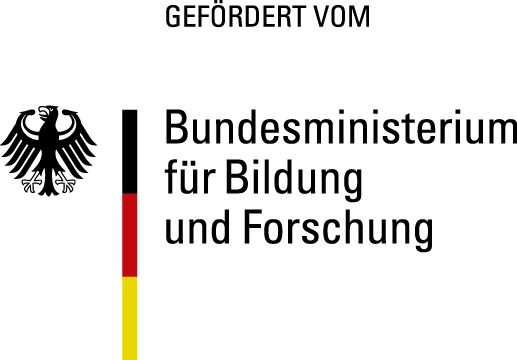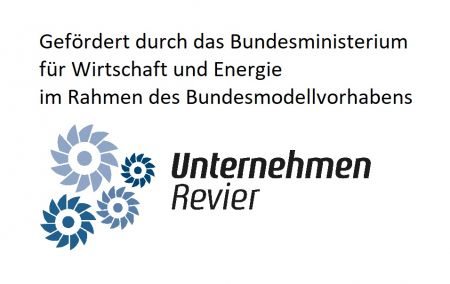Next Generation Drugs - NGD (StStG Coal) Structural strengthening project in the former coal region of Lusatia

The research network "Next Generation Drugs" (NGD) uniquely addresses biobased technology developments, biomedical research and sustainable bioeconomy in order to successfully implement the structural change goals in the former coal region of Lausitz. NGD is an integrated part of the Lausitz Science Park of the BTU at the Senftenberg site, based on the scientific expertise of the partners:
- Brandenburg University of Technology Cottbus - Senftenberg (BTU: Departments of Enzyme Technology as well as Molecular Cell Biology),
- Fraunhofer Institute for Cell Therapy and Immunology (IZI-BB) and the
- Fraunhofer Institute for Applied Polymer Research (IAP)
the transfer of research and development results to companies and the strengthening of the region's attractiveness for skilled workers and students.
The aim is to biocatalytically generate effective liver metabolites from drugs in vitro for the first time, tailor them to cellular requirements, test them pharmaceutically and formulate them as NGDs. As a result, unwanted metabolites and side effects generated during the conversion of the base drug in the liver are completely avoided. The NGD consortium focuses on a novel variety of oxidative biocatalysts, the nonspecific peroxygenases (UPOs) - heme thiolate proteins that behave promiscuously with respect to challenging oxygen transfer reactions.Functionally, UPOs are monooxygenases acting outside the fungal hyphae, transferring a peroxide-bearing oxygen atom to diverse molecules. In this regard, the product spectra with respect to the conversion of active pharmaceutical ingredients or xenobiotics are similar to those of cytochrome P450 monooxygenases, which are active as universal detoxification enzymes in the human liver.
Using prominent drugs such as clopidogrel, the present application shows by which cytochrome P450 isozymes active metabolites are produced cellularly in the liver and how these can be produced for the first time as NGDs in vitro and used in the future for long-term antithrombotic therapy, prevention and treatment of strokes, myocardial infarctions and other e.g. COVID-related circulatory disorders. With a time lag, the NGD concept will be applied to relevant drugs such as the cytostatic drug tamoxifen, which is used against breast cancer, as well as other drug candidates from the research-based pharmaceutical industry.
Duration 2023-2028
see also: Department of Enzyme Technology - BTU Cottbus-Senftenberg (b-tu.de)
AVantiLT - Arthrospira platensis as source for the development of new anti-cancer drugs - validation of the cytostatic principle on liver tumor cells.

Arthrospira platensis (AP, colloquially "Spirulina") is a bacterium, but is often referred to as a "microalga". It is known that AP ingredients are able to inhibit the growth of cells from various tumors, while this is not supposed to be the case for cells from healthy tissue. However, systematic studies on this are completely lacking so far. Due to the expertise of our research group and the fact that liver cancer is on the rise worldwide and has a particularly poor prognosis, the investigations will be carried out using the liver as an example.
The scientific aim is to test the underlying hypothesis "Arthrospira ingredients are able to inhibit proliferation of liver tumor cells but does not affect healthy liver cells". Natural product chemistry techniques will be used to identify the pharmacologically active ingredients in AP extracts. Systems biology and bioinformatics will also be used to elucidate the mechanism of action of the AP compounds.
Overall, the AVantiLT project aims to systematically demonstrate for the first time which ingredients of AP are responsible for previously seen effects and whether these active ingredients can inhibit the growth of liver tumor cells, while cells from healthy liver tissue are not affected. In the process, fundamental insights into the mechanism of action will be found.
Duration: 2022 - 2027
Development of an assay platform of cell based immunofluorescence and solid-phase quantitative analysis of antibodies in patients with Myasthenia Gravis (CytoMuSK)

Subject of the "CytoMuSK" collaborative project is the development of an innovative method to reliably diagnose the autoimmune disease myasthenia gravis (MG), a severe muscle weakness that is often fatal, using blood samples from patients. Patients with this disease develop autoantibodies that are directed against the body's own MuSK protein. The aim of the project is to develop special human cell cultures and cell-free systems that make the MuSK protein available for autoantibody tests. The actual diagnostic test will be developed and marketed by GA Generic Assays GmbH on the basis of an automated microscopy procedure.
CytoMuSK is funded by the Federal Ministry for Economic Affairs and Energy as part of the model project "Unternehmen Revier" and "Regionales Investitionskonzept" (RIK) and is coordinated by the "Wirtschaftsregion Lausitz GmbH". The project addresses the establishment and further development of regional competencies in the future field of biotechnology. Furthermore, the transfer of resulting technological innovations from university research to economic utilization in the health care industry is supported. A novel diagnostic tool for the improved detection of MG will be developed through close integration of our department with the industrial partner GA Generic Assays GmbH.
Duration: 2021 - 2023
Analysis of Spirulina platensis (or Arthrospira platensis) on human cells for the evaluation of pharmacologically active substances for the establishment of a value chain with microalgae in Lusatia (SpiraCell-BB)

SpiraCell-BB is a research network between the BTU Cottbus-Senftenberg (Prof. J.-H. Küpper - Molecular Cell Biology, Prof. Dr. Ingolf Petrick - Technical Thermodynamics / Phototrophic Biotechnology) and the Fraunhofer Institute for Applied Polymer Research (Dr. Anne Krüger-Genge - Department of Biomaterials and Healthcare). This project is funded by the European Regional Development Fund and the State of Brandenburg.
The main objective of the project is to develop the commercial benefits of the microalgae Arthrospira platensis (Spirulina) for the Lusatia region. Within the scope of the research work, Spirulina extracts are to be evaluated in vitro as the basis for new phytopharmaceuticals for defined medical indications. The cooperation partners have many years of experience in algae biotechnology, molecular cell biology, endothelial cell research and biomedicine in general. The project will analyze effects of Spirulina extracts on relevant target cells representing organs important for oral uptake of substances, namely colon, blood vessels and liver.
Duration: 2020-2022
Fungal-based cell-free synthesis platforms (PZ-Syn)

In the next few years, the Fraunhofer branch of the PZ-Syn project will work on the development of new biotechnological processes for the highly effective production of proteins in cooperation with Prof. Küpper. Purified proteins play an increasing role as pharmacological active ingredients in the pharmaceutical industry and as highly specific biocatalysts for the production of fine and special chemicals in the chemical industry. The new technology portfolio, which is based on the expertise of partners at the Technical University of Dresden, the Fraunhofer IZI-BB and the Institute of Biotechnology at the BTU, will make it possible for the first time to upscale protein production in a highly controllable cell-free system for industrial applications.
With the establishment of the branch office, the cooperation between the Fraunhofer institute and the BTU will be intensified and contributions can be made to the structural change of Lusatia towards a sustainable industrial region.
Duration: 2018-2023
